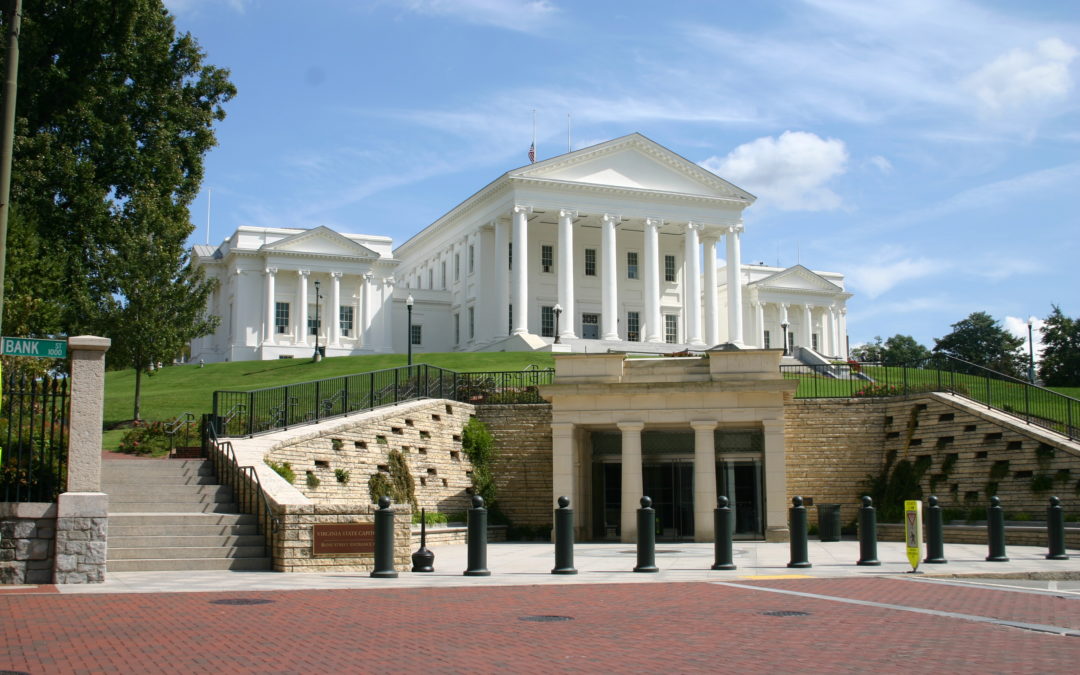With Crossover behind us, the House turned its attention to the state budget. I’ve dedicated this week’s e-newsletter to detailing how the budget works and what is in this year’s budget. I hope you’ll find this information useful and informative.
HOW THE BUDGET WORKS
One of the many things I’ve learned in Richmond thus far is that process matters. The budget process is very similar to passing other bills, but on a slightly different schedule.
Virginia has biennial budgets that are introduced by the Governor. With the way the biennial cycle falls, this budget was introduced by Governor Ralph Northam in December.
Both the House and Senate budget committees spend the first half of session reviewing the introduced budget and soliciting amendments from members of the General Assembly. Governor Glenn Youngkin also weighed in.
This past Sunday, the 20th, both the House and Senate released their budget proposals. They both subsequently passed their respective chambers with bipartisan support.
Moving forward, each chamber’s budget will be considered by the other. Consistent with longstanding practice, the House and Senate will amend the other body’s budget proposal with their own. As a result, the budget bill will go to a conference committee so that the differences between the two can be worked out. The final product from the conference committee will be put to a vote during the final days of the legislative session.
Once signed into law by the Governor, the new spending bill will become effective July 1, 2022.
One final note: Virginia’s budget is composed of both general and non-general funds. General funds are derived from general state taxes and go towards core priorities like K-12 education and public safety. Non-general funds come from a specific tax or fee and are designated by law to go towards a specific budget area. For example, money received from the gas tax is required to go to transportation.
WHAT’S IN THE BUDGET
This year’s budget has many provisions that support our schools and law enforcement, all while cutting taxes on hardworking families.
Our K-12 education budget is the largest in state history. This budget includes two 4 percent raises for teachers and other public education employees, along with a 1 percent bonus each year of the biennium. The budget also includes $2 billion dollars in the form of loans to help repair and rebuild crumbling school buildings across the Commonwealth. Other education spending in the budget includes:
- Additional funding for schools to hire reading specialists
- $150 million for the start up of “laboratory schools” which will work in cooperation with our colleges and universities to find innovative ways to teach our students
- Fully funding the latest revisions of the Standards of Quality for our K-12 students
I understand that money alone will not fix all of the issues with our education system. But a smart investment of funds and an increase in school choice–like the new funding for laboratory schools–will help provide more opportunities for our children.
Public safety employees, including state police, sheriffs’ deputies, and correctional staff, will all receive significant salary adjustments to help recruit, train, and retain employees. Starting pay for state police is increased to $51,500 and sheriffs’ deputies, and correctional staff up to $42,000. The budget will also take steps to end gun violence without infringing on our 2nd Amendment rights by funding Operation Ceasefire.
All of this will be done while also decreasing the tax burden on hard working families. The budget includes $5.3 billion in tax relief for Virginians. These benefits include increased rebates, doubling the standard income tax deduction, ending the grocery tax, and suspending for one year the gas tax. Repealing the grocery tax is estimated to save families 2.5 percent whenever they go to the grocery store. Additionally the budget excludes the first $40,000 in veterans’ pension income from taxation and includes a new income tax deduction for teachers.
I’m also glad that the House budget includes a language-only amendment I introduced that will allow existing funds designed to help combat addiction to opioids to be used for other types of addictions. We should use every tool in the toolbox to help those battling addiction.
Several other highlights included in the budget include:
- $313 million deposit into the Water Quality Improvement Fund to provide much needed resources for restoring the Chesapeake Bay
- $150 million to strengthen Virginia’s cybersecurity networks
- Increased funding for VDOT in order to fund additional road and bridge projects across the state
This House budget will serve as the starting point for negotiations with the Senate. I look forward to closely reviewing the final product.
It is an honor to represent you and your family in the Virginia House of Delegates. Please reach out to me with concerns on any bills making their way through the legislative process or if you need assistance with a state agency. My staff and I stand ready to assist you in any way possible.
Sincerely,
Mike Cherry

